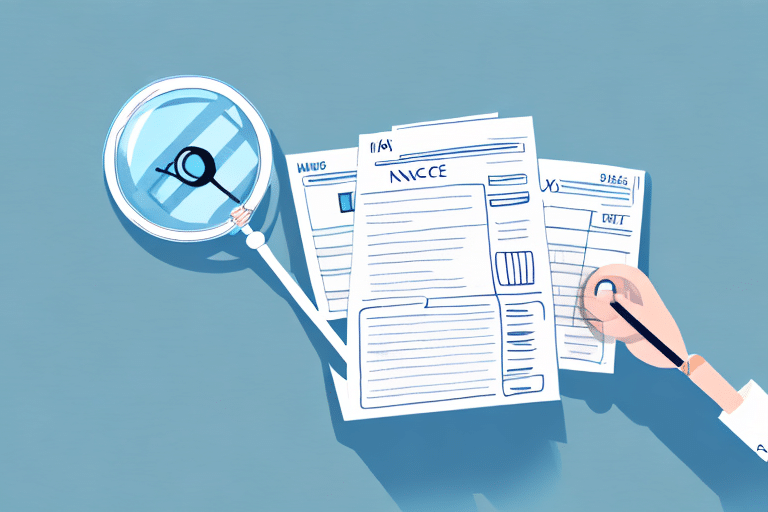The Cost-Saving Benefits of Invoice Auditing
Invoice auditing is a critical practice for businesses aiming to enhance their profitability. By meticulously analyzing invoices, companies can ensure they are not overpaying for services or products, thereby safeguarding their financial health.
Identifying Billing Errors and Overpayments
Through invoice auditing, businesses can uncover discrepancies such as billing errors, overpayments, or fraudulent charges. For instance, a thorough audit might reveal that a company has been overcharged for a service by 10%, allowing them to dispute the charge and recover lost funds.
Optimizing Spending and Negotiating Better Rates
Invoice audits provide insights into spending patterns, enabling businesses to identify areas where they are overspending. This information can be leveraged to negotiate more favorable rates with vendors or eliminate unnecessary expenses altogether.
Enhancing Cash Flow Management
Effective cash flow management is essential for maintaining the operational stability of a business. Invoice auditing plays a pivotal role in this by ensuring timely payments and accurate financial forecasting.
Prioritizing Payments and Avoiding Late Fees
By analyzing unpaid invoices and identifying payment errors, businesses can prioritize their payments effectively. This helps in avoiding late payment fees and maintaining a good credit score.
Improving Financial Forecasting
The data derived from invoice audits offer valuable insights into a company’s financial patterns, aiding in more accurate budgeting and forecasting. This ensures that businesses can plan their finances with greater precision.
Top Reasons to Prioritize Invoice Auditing
Prioritizing invoice auditing offers multiple advantages that go beyond mere cost savings:
- Reduce Costs: Identifying billing errors leads to significant cost savings.
- Improve Vendor Relationships: Accurate and timely payments foster trust with vendors.
- Enhance Cash Flow: Proper auditing ensures better management of accounts payable and receivable.
- Mitigate Fraud Risks: Regular audits help in detecting and preventing fraudulent activities.
- Ensure Compliance: Adhering to regulatory requirements avoids legal penalties.
Additionally, invoice auditing helps in:
- Process Improvement: Identifying opportunities for automation and efficiency.
- Insightful Budgeting: Gaining a clear understanding of spending trends for better forecasting.
Leveraging Technology for Invoice Auditing
Modern technology has revolutionized the invoice auditing process, making it more efficient and accurate. Automated tools and software solutions are indispensable for businesses striving to streamline their financial operations.
Automated AP/AR Systems
Automated Accounts Payable/Receivable systems reduce the time and effort required for invoice processing, minimizing human errors and ensuring data accuracy.
Data Analytics and Electronic Invoicing
Data analytics tools help in monitoring invoice statuses and generating real-time reports. Electronic invoicing systems facilitate the digitization of invoice data, enhancing accessibility and collaboration across departments.
Enhanced Communication and Collaboration
Cloud-based solutions enable real-time access to invoice data, fostering seamless collaboration among teams. Automated notifications keep all stakeholders informed, reducing the need for manual follow-ups.
Best Practices and Common Pitfalls in Invoice Auditing
Adhering to best practices ensures the effectiveness of invoice auditing, while avoiding common mistakes can prevent financial losses:
Best Practices
- Conduct regular and ongoing audits to consistently identify discrepancies.
- Establish clear policies and procedures for invoice approval and processing.
- Automate invoice processing and tracking to enhance efficiency.
- Maintain clear communication and set defined payment terms with vendors.
- Utilize data analytics to uncover patterns and trends in invoice data.
Common Mistakes to Avoid
- Overlooking minor discrepancies that can accumulate over time.
- Failing to verify invoice data against receipts or other documentation.
- Lacking clear policies for invoice approval and processing.
- Ignoring insights from data analytics that can highlight spending patterns.
- Excluding relevant stakeholders, including vendors, from the auditing process.
Proper documentation and timely audits are also essential to ensure continuous improvement and prevent financial setbacks.
Selecting the Right Invoice Audit Provider
Choosing the appropriate invoice audit provider is crucial for maximizing the benefits of auditing. Here are key factors to consider:
Experience and Expertise
Look for providers with extensive experience in your industry and familiarity with businesses of your size. Their expertise can significantly impact the effectiveness of the audit process.
Technology and Tools
Ensure the provider offers advanced technology solutions that can streamline invoicing processes, such as automated matching and real-time reporting tools.
Cost Transparency
Understand the provider’s cost structure and ensure there is transparency in their fees. This helps in budgeting and avoiding unexpected expenses.
Customer Service
Choose a provider known for excellent customer service and responsiveness. This ensures that any issues or queries are addressed promptly.
Data Security
Data security should be a top priority. Verify that the provider has robust security measures in place to protect your sensitive financial information.
Customization and Flexibility
A provider that offers flexible services tailored to your specific business needs can provide greater value and support your unique financial goals.
Impact on Compliance, Ethics, and Risk Management
Invoice auditing plays a significant role in maintaining compliance with regulatory standards and upholding ethical business practices. It also helps in mitigating various financial risks.
Ensuring Regulatory Compliance
Regular audits help businesses adhere to financial regulations and standards, thereby avoiding legal penalties and maintaining a good standing with regulatory bodies.
Preventing Financial Fraud
Invoice audits are instrumental in detecting and preventing fraudulent activities such as duplicate payments, fictitious vendors, or inflated prices, thereby protecting the business from financial losses.
Enhancing Ethical Practices
By establishing clear vendor payment terms and maintaining accurate financial records, businesses promote transparency and ethical dealings with their partners.
Risk Mitigation
Effective invoice auditing identifies and addresses potential risks related to financial management, ensuring sustained financial stability and credibility.
Real-Life Success Stories from Businesses
Numerous businesses have reaped substantial benefits from implementing invoice auditing practices. Here are a few examples:
- A manufacturing company recovered over $500,000 in overpayments by conducting a comprehensive invoice audit.
- A healthcare provider identified billing errors and successfully reclaimed $100,000 from vendors.
- A retail chain negotiated better rates with suppliers through diligent invoice auditing, resulting in significant cost savings.
These case studies highlight the tangible financial advantages that businesses can achieve through effective invoice auditing.
Conclusion
Invoice auditing is a powerful tool that offers numerous benefits to businesses, including substantial cost savings, improved cash flow management, and enhanced compliance with regulatory standards. By adopting industry best practices, leveraging advanced technologies, and selecting the right audit provider, businesses can optimize their financial operations and achieve greater profitability.
For more information on optimizing your financial processes, visit ShipScience.






















